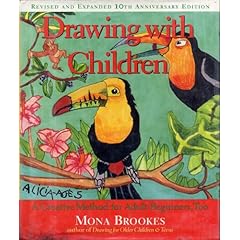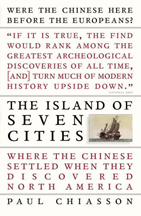1 day ago
Saturday, October 31, 2009
Dan Mangan.
Check out Dan Mangan's latest album on CBC Radio 3 or find out more about him, his projects and his tour dates on his website. I'm loving it.
The Fabric of the Future
 I haven't really been reading any one book lately because I've had this interesting anthology on my night table. It's not really the type of thing to read through in order but rather I've been opening it up to different ideas every night. My first knowledge of Iktumi's Invitations actually came from one of the essays in this book.
I haven't really been reading any one book lately because I've had this interesting anthology on my night table. It's not really the type of thing to read through in order but rather I've been opening it up to different ideas every night. My first knowledge of Iktumi's Invitations actually came from one of the essays in this book.The thing about this kind of reading is that it can last a long time (because there are contributors), and not everything hits the right note at the particular moment it is read so I've been thinking about the various essays over time. What I have liked is that many of the writers are talking about something beyond patriarchal slagging feminism, - namely what is highlighted is the important contribution that women and traditionally feminism ethics will and must make into the future. Because the contributors come from many different walks of live the ideas are broadly informed. The writers don't form one consistent thesis but rather diverge and converge around where the world may possibly be headed. They each seem to be deeply passionate/ hopeful/thoughtful in their respective areas of expertise and to me this is very hopeful for the world.
Check it out on the Google book site.... its pretty amazing too!
Thursday, October 29, 2009
Teaching Art to Children
While this site was great to reference, it also had links to other art with children web sites like Art & Learning to Think, -which is a bit more on the philosophical side but sound educational thinking for any subject, Homeschool Printables by Donna Young, -which has Blackline masters for many subjects including art, and Art Projects for Kids, which is wonderfully broken down into age appropriate levels and clear and simple instructions. All these great finds on the web have me wondering if I really need the book after all ... but then again there is something unique about being able to flip through actual pages.
A great source for primary art project ideas is Deep Space Sparkle. Can't wait to try some of these ideas out.
Wednesday, October 21, 2009
Iktumi's Invitations to Self Deception
1. If only I were rich, then I would be happy.
2.If only I were famous, then I would be happy.
3. If only I could find the right person to marry, then I would be happy.
4. If only I had more friends, then I would be happy.
5. If only I were more attractive, then I would be happy.
6. If only I weren't physically handicapped in any way, then I would be happy.
7. If only someone close to me hadn't died, then I could be happy.
8. If only the world were a better place, then I would be happy
8. If only the world were a better place, then I would be happy
These 'invitations' come from Iktumi, the trickster or liar figure of the Lakota tradition. (Mills, Billy. Wokini.) As I was looking into this character I came across other writing on the web that brought up Pandora and the Adam and Eve Apple myth as a way to explain unhappiness (evil) in the the world, -what were the sources of unhappiness and what is to blame for its appearance at large. Reflections aside, I like the way these 'invitations' are super straight forward and echo the way that deceptive thoughts sometimes cross my mind... now just to remember to refuse these tricky little ditties.
Sunday, October 18, 2009
Daily Physical Activity (DPA) Notes from the 60's
How are we supposed to believe exercises are worth
it if the teachers don't seem to be interested?
-Richard Milington
Its amazing that the health of youth in school was being addressed as long ago as 1963 and it is still such a problem. This little letter goes a long way in explaining why. It is written by a school boy, Richard Millington, to president Kennedy and complains of the fact that so often teacher leading physical activity initiatives are clearly not parting in any of their own. You'll have to visit over at Letters of Note to read it in full. Simply, spot on.
Tuesday, October 13, 2009
The Way of Water
The supreme good is like water,
which nourishes all things without trying to.
It is content with the low places that people disdain.
Nothing in the world
is as soft and yielding as water.
Yet for dissolving the hard and inflexible,
nothing can surpass it.
The gentlest thing in the world
overcomes the hardest thing in the world.
That which has no substance
enters where there is no space.
This shows the value of non-action.
All streams flow to the sea
because it is lower than they are.
Something about the above painting always reminds me of the Toa Te Ching so today I decided to go through and see if I could figure out why. Certainly the carved walls of Johnston Canyon speak to the powerful forces of water over time; nevertheless I can't help remembering the roar of water that didn't seem to have anything to do with softness or humility. Maybe the fact that the painting is very serene despite its lively subject, is what makes it interesting.
Saturday, October 10, 2009
The Island of the Seven Cities
This book got inside of my head because it was convincing enough to make me question some of the history that I've previously taken for granted. I just didn't know what to make of it. Certainly, I found the history of Cape Breton that is explored in the first part of the book very interesting because I was never really aware of how important the island was for the first Europeans on the continent. The later sections of the book were more problematic. In the latter parts, information about the architectural 'ruins' of the site Chiasson has found, and cultural knowledge and textile patterns that seem to be unique to the Mi'qmak are sited as evidence of Chinese settlement on the island before Europeans (sometime around 1421).
While it seemed to me like some of the similarities are striking (particularly the clothing patterns as compared to traditional Chinese dress) there isn't any of the evidence one might expect to find of human settlement. I tried looking on the internet for more evidence of Chinese settlement on the coast of Cape Breton but there was not much more then book reviews on the Seven Cities. That in itself raises questions about why archeologists haven't investigated further. Perhaps they know something that the author of the book is overlooking. It is also possible that the wheels of science turn slowly and there is lag time on exploring new ideas that run counter to what is commonly held knowledge. However, it seems like this would be an exciting avenue for further research if it was legitimated by artifacts of daily and industrial life as Chiasson is suggesting. It would also mean all but a few sparse accounts of the 'ruins' have been successfully covered up or 'forgotten' in both European and Chinese history, which doesn't seem likely.
In any case, it was interesting to wrap my mind around this possibility. I did think the similarities of dress and other cultural knowledge type evidence was compelling. It suggests that there was some kind of contact that little is known about but I doubt the scale of the settlement Chiasson claims. Now that it is on my radar, though sceptically, I will certainly keep my ears open to new information on the topic.
While it seemed to me like some of the similarities are striking (particularly the clothing patterns as compared to traditional Chinese dress) there isn't any of the evidence one might expect to find of human settlement. I tried looking on the internet for more evidence of Chinese settlement on the coast of Cape Breton but there was not much more then book reviews on the Seven Cities. That in itself raises questions about why archeologists haven't investigated further. Perhaps they know something that the author of the book is overlooking. It is also possible that the wheels of science turn slowly and there is lag time on exploring new ideas that run counter to what is commonly held knowledge. However, it seems like this would be an exciting avenue for further research if it was legitimated by artifacts of daily and industrial life as Chiasson is suggesting. It would also mean all but a few sparse accounts of the 'ruins' have been successfully covered up or 'forgotten' in both European and Chinese history, which doesn't seem likely.
In any case, it was interesting to wrap my mind around this possibility. I did think the similarities of dress and other cultural knowledge type evidence was compelling. It suggests that there was some kind of contact that little is known about but I doubt the scale of the settlement Chiasson claims. Now that it is on my radar, though sceptically, I will certainly keep my ears open to new information on the topic.
Thursday, October 8, 2009
Speaking on the Problems of a Single Story
What a great reminder. It makes me contemplate how I include other people in my own personal narrative. Definitely something to set on the back burner and think about.
Wednesday, October 7, 2009
The Darwin Conspiracy
A far as historical fiction is concerned there seems to be two types. One sets fictitious characters in the past and tells a story that accurately reflects the atmosphere of the time and place. Something like the story of Aminata Diallo in The Book of Negros would be a good example of this kind. The second kind uses real historical characters of interest and adds fictitious artifacts/events to add to the history. The Darwin Conspiracy by John Darnton clearly was the second type and the trouble I encountered within it was that this kind of historical fiction can sometimes blur where the history ends and the fiction begins. In this case, so much so that I was distracted from the fiction and distrusting of the history. While the historical details are apparently well researched, I felt like I couldn't trust any insight into the time because so many details seemed to have been invented for the story's sake. It was very much a la Da Vinci Code and while it was an original idea on the telling of Darwin's story, its own telling wasn't as inspired.
I echo the feelings of a fellow web bookreporter, Kathy Weissman, "If you're looking for a nice, light entertainment with a sprinkling of natural science and history, plus a bit of a mystery, try it. But if you want a genuinely good book, go elsewhere...1"
Tuesday, October 6, 2009
CBC Rocks!
A playlist from a friend, my brother actually, turned me on to CBC radio on the computer. Really its seems like something I should have guessed at given the CBC's awesome internet archives for television but somehow never did. CBC radio 3 just launched a new site and lets us tune into new and emerging Canadian artists from cross the country and make our own playlists for others to enjoy. The great thing about the new launch is that because the site is all new, the instructions to help user get set up are front and center. I'm already working on my own playlist (it's super easy!) and would love to hear from your own playlists if you build one... What a great way to foster the Canadian music scene and remind myself that I love the CBC. Thanks for the connection brother.
Monday, October 5, 2009
Je ne sais quoi! Adrien Deggan
You can also check out other work by Adrien on his Stamps blog!
Sunday, October 4, 2009
Unlikely Utopia; The Surprising Truimp of Canadian Pluralism
"Canada is the only place on Earth that has...a national minority group, an Aboriginal population and a substantial immigrant population" p.9
" In Canada Multiculturalism has always been geared toward helping minority groups participate more fully in Canadian society" p. 10
"First, resources permitting, the government will seek to assist all Canadian cultural groups that have demonstrated a desire and effort to continue to develop a capacity to grow and contribute to Canada and a clear need for assistance, the small and weak groups no less than the strong and higly organized.
Second, the government will assist members of all cultural groups to overcome cultural barriers to full participation in Canadian society.
Third, the government will promote creative encounters and interchange among Canadian cultura groups in the interest of national unity.
Fourth, the government will continue to assist immigrant to acquire at least one of Canada's official language in order to become full participants in Canadian society"
-Trudeau, "Announcement of Implementation of
Policy of Multiculturalism within Bilingual Framework,"
House f Commons, Ottawa, 8 October 1971.
"Canadians talk a great deal about multiculturalism but spend very little on it. Of a total annual budget of $189 billion, about $27 million is earmarked for multiculturalism... less than 0.02% of federal spending." p 12
" For although there are two official language, there is no official culture, nor does any ethnic group take precedence over any other. No citizen or group of citizens is other than Canadian, and all should be treated fairly."
-Trudeau, "The Cultural Contributions of
Other Groups," Vol. IV, Royal Commission
on Biligualism and Biculturalism, 1971
" Not only do Canadians feel that multiculturalism is a central part of their country's identity, its also increasingly a source of pride." p. 20
" Canada has the highest proportion of foreign-born legislators in the world. This is true in two ways. First, we have the worlds largest proportion of seats in our lower legislative chamber (the house of commons) occupied by people who weren't born here. Second, our proportion of foreign-born legislators comes the closest in the world to matching the proportion of foreign-born people in the country's population overall." p 69
When I was in Uni. and required to take a methods course on statistical analysis I thought that reading data was about as dry as a 6 day old muffin in an Alberta winter. Who can forget pulling an all-nighter to study election survey results from 1996? Never one to tie down, I was a little surprised as I read through the evidence Micheal Adams cites as he writes about the burgeoning success of 'the multicultural experiment' with a fair bit of interest. The fact that I could reflect on the author's topic based on my own lived experiences made all the difference. Plus, it was interesting to have some of the history of multiculturalism (from before my time) highlighted so as to better understand how we got to where we are today. I think I am definitely one of those 18-26 who now take multicultural aspirations for granted as part of the Canadian ideal but I also confront some of the concerns Adams raises about "ethnic enclaves" on a daily basis. In the end, this book was like a little pat on the back that said, "You're doing well but keep that nose to the grindstone or it might all go for not." Funny, that attitude strikes me as kind of Canadian too !
Saturday, October 3, 2009
A Complicated Kindness
The title reminded me of a book called The God of Small Things (TGOST) by Arundhati Roy that I read years ago. I don't know why but I was half expecting it to be like a continuation...and in many ways it was, albeit in a very different setting. TGOST was about twins separated in India and had the kind of subtle observations of situations that burrowed deep into your memory so that you forget that they are part of the story until they come up again and reconnect with the themes the author is building. Despite the difference in the settings (this book is in a Mennonite community somewhere in Canada), Miriam Toews' writing in A Complicated Kindness (ACK) ended up doing a similar thing. As I remember TGOST, it deals with the expression of genuine human emotions within a system that subverts some such natural feelings. This was also a theme developed in ACK. In this is novel the voice of the young person trying to make sense of what is at the surface and what is underneath, is very clear, unique, and, -at times, painfully awkward. What I really liked was that through all the confusion and tension, there was always a really clear, gentle, and endearing love that bonds the family. I wouldn't say that it was easy reading but I laughed out loud at parts and thoroughly enjoyed it despite the teenage angst.
Subscribe to:
Posts (Atom)










